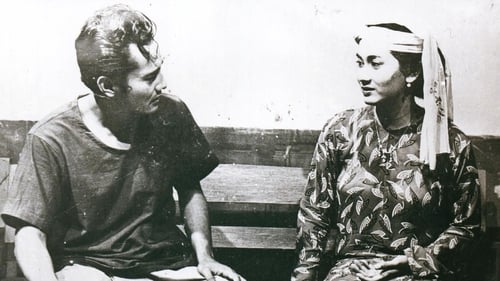Wahid Chan
Рождение : 1921-07-14, Banda Aceh, Aceh, Indonesia
Смерть : 1971-12-20

A black comedy about love relationship between a photographer and a bank teller.

Dr. Santo
An evil, murderous woman attempts to eliminate her stepdaughter Lisa in order to get her hands on an inheritance but gets more than she bargained for when she's haunted by a ghost.

Puasa
Drawing from the novel, lenong (play) and the previous film (Njai Dasima I), this new film version has heightened erotic scenes considered the boldest for its time. But as mentioned by the director, the eroticism is meant to reveal the psychological aspects of the characters. Unlike the previous version, that mainly highlights conflict between love and witchcraft, this one features social and psychological conflicts. For example, how Dasima feels like an outsider with Edward Williams’s friends, or how she prefers leaving their house to live with her maid in the village. It also shows more background of the Samiun and Hayati characters - Samiun is a black market trader with a lot of debts and Hayati is a woman obsessed with gambling to get rich. When his debts are due and he is unable to pay, Samiun asks his friend, Puasa, to “rob” him while he is returning to their village with Dasima.

Herman, a customs officer assigned to eradicate smuggling, often loses his temper. When a smuggler’s ship is reported, he immediately orders a search-and-destroy but it’s a reckless act that results in the easy escape of other ships. Then Herman is posted to the mainland as punishment. Here, he reunites with an old friend, Rusli, who offers him a bribe. Herman is now a suspect as several of smuggling ships are able to escape. But it is Herman’s strategy to gain Rusli’s trust so that he can eradicate smuggling at its root. He is reposted back to sea.

Озвучивая страдания нации, борющейся за свою национальную идентичность, картина Усмара Исмаила следует за разочарованным бывшем борце за свободу, который не может приспособиться к гражданской жизни после революции, давшей Индонезии независимость от Нидерландов. Пропитанный мрачной атмосферой и психологическим напряжением, фильм, как молния, поразил национальный кинематограф, впервые и с непоколебимым реализмом осветив эмоциональные последствия постколониальной борьбы индонезийского общества.

Harjiman
Suparto is a middle-ranked officer who is moved to Jakarta. In the city, he meets Harjiman, the licensing importer. Then Harjiman introduces him to Roostinah whose task is to seduce Suparto for help in securing the import licenses. Suparto's wife, Sulastri, comes to Jakarta when she hears about her husband's unfaithfulness. Then Suparto realizes that Roostinah is sent to seduce him, but when he returns to Sulastri, she rejects him. His crime is discovered and Suparto is sent to prison. When he completes his sentence, Suparto joins the migration to Sumatra. Then Sulastri accepts him again.

During the time of the confrontation, a group of young men led by Harun broke through the barricades of the Dutch navy patrol and landed at Mentawai Island. Their special mission is to detain Kafedo who is accused of collaborating with the enemy. Both men are romantically involved with Hiya. When the Dutch troops land on the island, Kafedo bravely demonstrates his love for the nation. So in the end, Harun allows Kafedo to marry Hiya.

Danu
During the revolution, Jaka takes refuge and entrusts his house to Husin. Husin then rents the house to someone else and Maryam has to face this bitter fact. She is visited by Danu and his wife Ratih, whom Danu likes to spoil, using state funds. He is arrested when his baby’s shower party is being held. Out of shock, his pregnant wife prematurely delivers the baby and loses a lot of blood. While the others are busy panicking, the cool and composed Ridwan donates his blood. This act of compassion attracts Ros’s attention and she falls in love with him.

Set in the 1930s, and narrated like a ballad from the past, "The Tiger from Tjampa" tells of how a young man, Lukman, seeks to avenge his father’s murder by learning pencak silat, a traditional form of self defence, based on the movements of animals.






